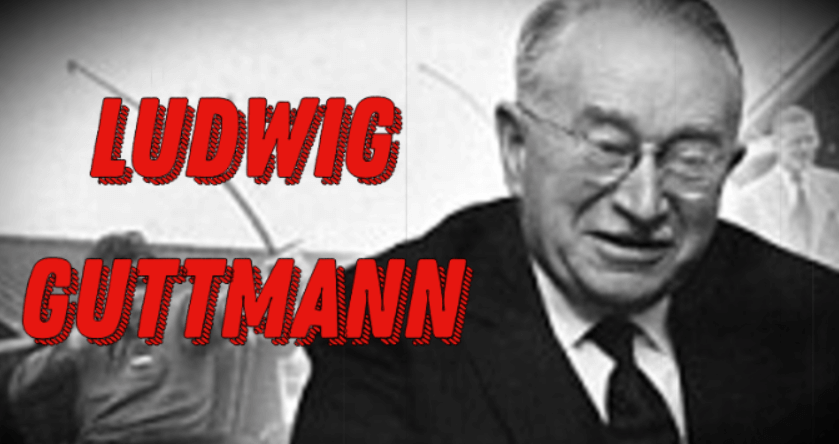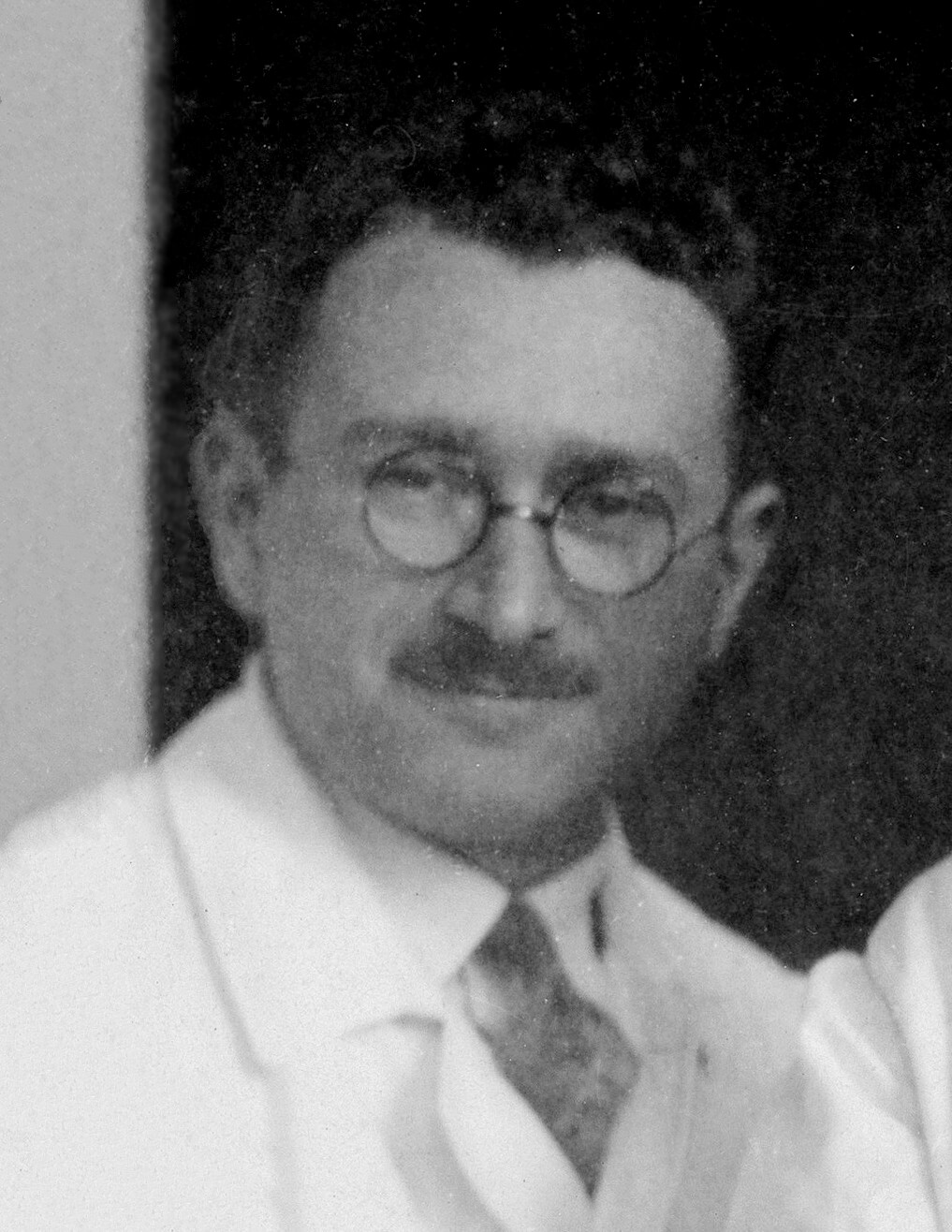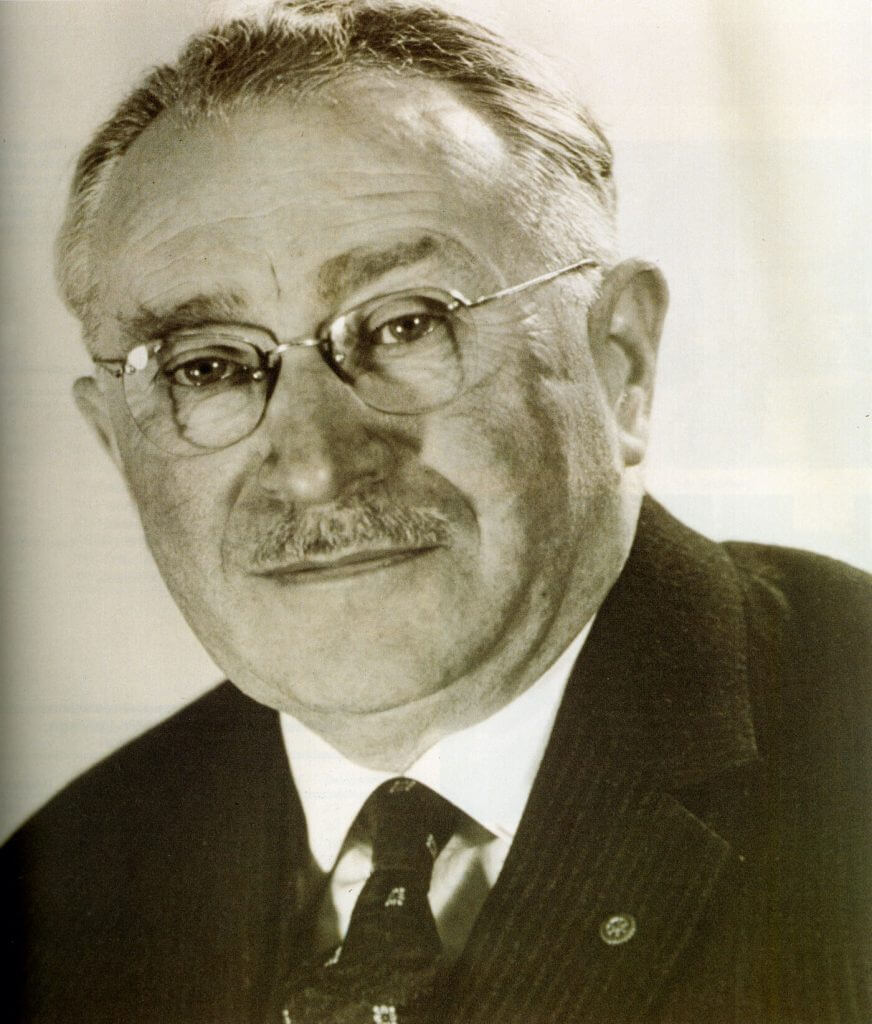Explore the remarkable life and contributions of Ludwig Guttmann, a renowned neurologist who revolutionized the treatment of spinal cord injuries. Discover how his innovative rehabilitation methods led to the establishment of the Paralympic Games, promoting inclusivity and empowering individuals with disabilities through sports.

Ludwig Guttmann was a German-born British neurologist and physician. He is best known for his pioneering work in the field of spinal cord injuries and for founding the Paralympic Games. Guttmann revolutionized the treatment of spinal cord injuries by introducing the concept of comprehensive rehabilitation and emphasizing the importance of physical activity and sports in the recovery process. His efforts led to the establishment of the Stoke Mandeville Games, which later evolved into the Paralympic Games. Guttmann’s work significantly improved the quality of life for people with disabilities and transformed the way society perceives and supports individuals with physical impairments.
Career
After completing his medical studies, Ludwig Guttmann began his career as a neurologist and physician in various hospitals in Germany. In the 1930s, he worked at the Breslau Jewish Hospital, where he specialized in the treatment of spinal cord injuries and other neurological disorders.
With the rise of the Nazi regime and the increasing persecution of Jews, Guttmann, who was Jewish himself, faced significant challenges. In 1933, he was dismissed from his position due to the introduction of racial laws by the Nazis. Determined to continue his work, he relocated to England in 1939 with his family.
In England, Guttmann initially worked at the Radcliffe Infirmary in Oxford. It was during this time that he began to develop his groundbreaking rehabilitation methods for individuals with spinal cord injuries. He introduced the concept of treating the whole person rather than just the injury, emphasizing physical activity, exercise, and sports as integral parts of rehabilitation.
In 1944, Guttmann was appointed as the director of the new National Spinal Injuries Centre at Stoke Mandeville Hospital in Aylesbury, England. There, he implemented his innovative approaches, which included wheelchair sports and competitions for patients.
These efforts eventually led to the establishment of the Stoke Mandeville Games, the precursor to the Paralympic Games. The first Stoke Mandeville Games took place in 1948, coinciding with the London Olympics, and marked the birth of the Paralympic movement.
Through his work at Stoke Mandeville Hospital and his advocacy for people with disabilities, Guttmann became a leading figure in the field of rehabilitation medicine and transformed the lives of countless individuals with spinal cord injuries. His pioneering contributions continue to impact the world of disability sports and rehabilitation to this day.

Work during World War II
During World War II, Ludwig Guttmann made significant contributions in the medical field, particularly in the treatment and rehabilitation of spinal cord injuries. In 1943, he was appointed as the director of the British government’s Spinal Injuries Centre at Stoke Mandeville Hospital in Aylesbury, England.
Guttmann’s work during the war focused on the rehabilitation of soldiers who had sustained spinal cord injuries while serving in the military. He developed innovative approaches to help these individuals regain functionality, improve their quality of life, and reintegrate into society.
One of Guttmann’s notable achievements during this time was the introduction of sports and physical activities as part of the rehabilitation process. He recognized the therapeutic benefits of sports for spinal cord injury patients, not only in terms of physical fitness but also in terms of building confidence, promoting social interaction, and fostering a competitive spirit.
Guttmann organized the first Stoke Mandeville Games in 1948, an event that brought together injured veterans to compete in various sports, including archery, wheelchair basketball, and swimming. This event eventually grew into the Paralympic Games, which became a global platform for showcasing the abilities and achievements of athletes with disabilities.
Guttmann’s work during World War II and his emphasis on comprehensive rehabilitation and the transformative power of sports laid the foundation for the modern field of disability sports and rehabilitation. His efforts greatly improved the lives of injured soldiers and set a precedent for the treatment and inclusion of people with disabilities worldwide.
Paralympic Games Foundation
The Paralympic Games Foundation is not a specific organization or entity. However, the Paralympic Games itself has a foundation known as the International Paralympic Committee (IPC). The IPC is the global governing body for the Paralympic Movement, responsible for organizing and overseeing the Paralympic Games.
The Paralympic Games Foundation is a general term that can refer to the underlying principles and values of the Paralympic Games, such as promoting inclusivity, equality, and the empowerment of individuals with disabilities through sport. The Paralympic Games Foundation encompasses the idea of using sports as a means to challenge and overcome barriers, break down stereotypes, and inspire people around the world.
The Paralympic Games Foundation, through the efforts of organizations like the IPC and various National Paralympic Committees, works to advance the development and growth of the Paralympic Movement, ensuring that athletes with disabilities have opportunities to compete at the highest level and promoting social inclusion and accessibility in sports and society at large.

Later life
In his later life, Ludwig Guttmann continued to make significant contributions to the field of rehabilitation medicine and the Paralympic movement. Here are some key aspects of his later years:
- Expansion of Stoke Mandeville Hospital: Guttmann played a pivotal role in expanding and developing the National Spinal Injuries Centre at Stoke Mandeville Hospital. Under his leadership, the facility grew in size and reputation, becoming a leading institution for the treatment and rehabilitation of individuals with spinal cord injuries.
- Global Influence: Guttmann’s innovative rehabilitation methods gained international recognition. He traveled extensively, sharing his knowledge and expertise with medical professionals and rehabilitation centers worldwide. His work and advocacy efforts helped promote the adoption of comprehensive rehabilitation programs for individuals with disabilities in different countries.
- Paralympic Games: Guttmann’s vision for the Paralympic Games continued to evolve and gain momentum. He worked tirelessly to expand the reach and impact of the Games, emphasizing the importance of showcasing the athletic abilities of individuals with disabilities and promoting social inclusion. His efforts contributed to the integration of the Paralympic Games as a major international sporting event.
- Recognition and Awards: Guttmann received numerous honors and awards for his work. In 1966, he was knighted by Queen Elizabeth II, becoming Sir Ludwig Guttmann. He also received the prestigious Olympic Order, presented by the International Olympic Committee, for his outstanding contributions to the Olympic and Paralympic movements.
- Legacy: Ludwig Guttmann’s legacy extends far beyond his lifetime. His pioneering work and advocacy for people with disabilities revolutionized the field of rehabilitation medicine and transformed societal attitudes towards individuals with spinal cord injuries. The Paralympic Games, which originated from his efforts, continue to inspire and empower athletes with disabilities worldwide, promoting inclusivity and breaking down barriers.
Ludwig Guttmann passed away on March 18, 1980, leaving behind a lasting impact on the lives of countless individuals with disabilities and shaping the landscape of disability sports and rehabilitation. His legacy continues to inspire and his vision lives on through the ongoing success of the Paralympic Games.